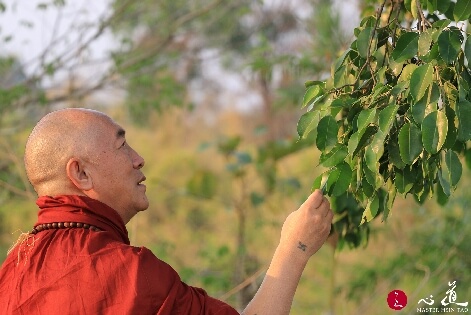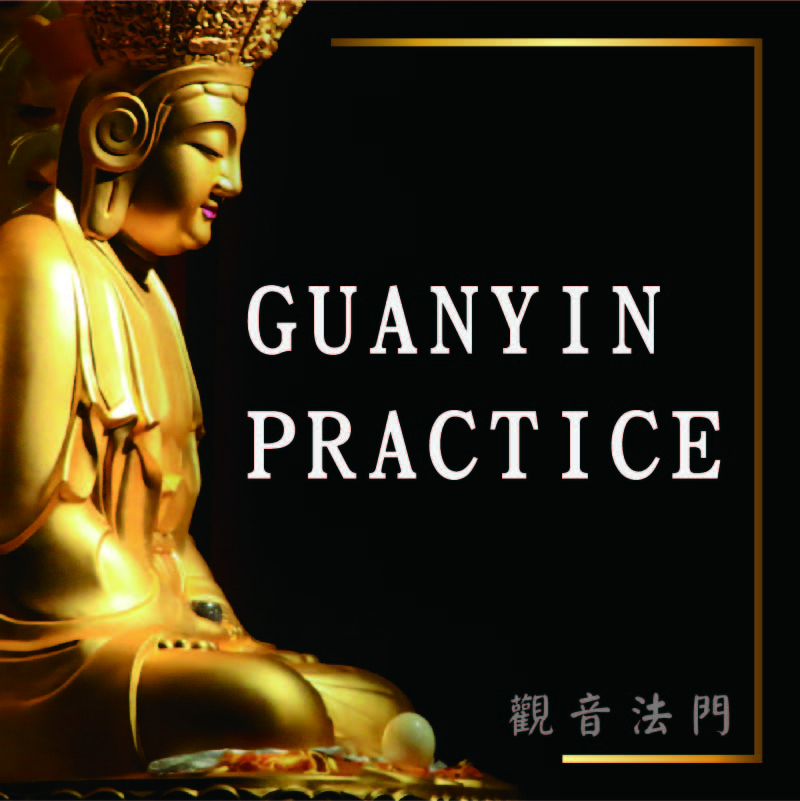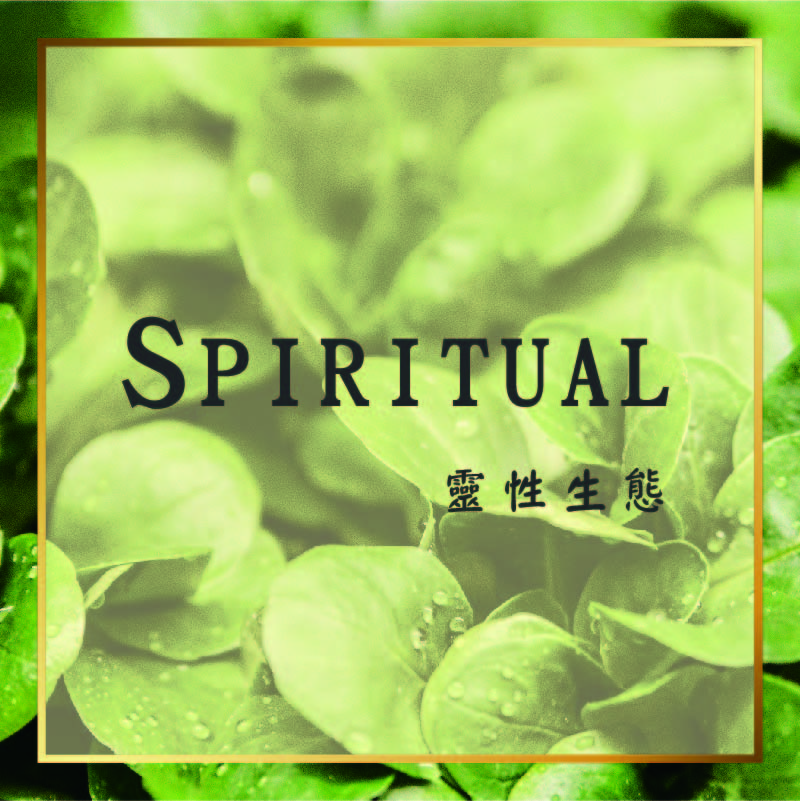
Water Related Spirituality for Climate Adaptation: Envisioning Climate Adaptation through a Buddhist Lens
 On October 19, 2021, following the successful conclusion of our participation in the Parliament of the World’s Religions (PoWR), later that day, we attended an evening forum: Water Related Spirituality for Climate Adaptation, organized by the International Council on Monuments and Sites, Water and Heritage (ICOMOS).
On October 19, 2021, following the successful conclusion of our participation in the Parliament of the World’s Religions (PoWR), later that day, we attended an evening forum: Water Related Spirituality for Climate Adaptation, organized by the International Council on Monuments and Sites, Water and Heritage (ICOMOS).
We are grateful to Mr. Henk and the organizing team for the invitation, and we extend our deep appreciation for their long-standing commitment to protecting the Earth’s ecosystems. It was a joy to have the opportunity to share ecological perspectives with everyone at this gathering.
Our presentation addressed climate change adaptation from a Buddhist perspective. Buddhadharma helps us to uncover the primordial state of spirituality, awakening us to the truth that all beings share the same root and origin, forming an entity of interdependence. Through this realization, we transcend physical appearances and allow the innate spiritual state of mind to manifest as great compassion and loving-kindness. Ecology is inherently spiritual. As the Avatamsaka Sutra states: “One is all and all is one.” Just like the metaphor of the Jewel Net of Indra in the Avatamsaka Sutra, the dharmadhatu is a cosmic matrix of infinite realms overlaying and connecting with one another. This clearly illustrates the inseparability of spirituality and ecology.
 The root of today’s problems lies in our own actions. Some say the Creator made the world—a world originally beautiful, with hearts pure and good. But over time, the Earth has become unwell, and humanity is deprived of vital nourishment. Who, then, is the Creator? It is our own every thought and intention. When the human mind is no longer motivated by clarity and goodness, but succumbs to the five poisons—greed, aversion, ignorance, pride, and doubt—we commit harmful deeds that damage the Earth’s structures, disrupt ecological balance, and lead to climate change. In only a few hundred years, humanity has undone the harmony and cyclical complexity of an ecological system that had developed over countless ages.
The root of today’s problems lies in our own actions. Some say the Creator made the world—a world originally beautiful, with hearts pure and good. But over time, the Earth has become unwell, and humanity is deprived of vital nourishment. Who, then, is the Creator? It is our own every thought and intention. When the human mind is no longer motivated by clarity and goodness, but succumbs to the five poisons—greed, aversion, ignorance, pride, and doubt—we commit harmful deeds that damage the Earth’s structures, disrupt ecological balance, and lead to climate change. In only a few hundred years, humanity has undone the harmony and cyclical complexity of an ecological system that had developed over countless ages.
We must identify the true origin of these issues and find the real creator. Only when the creator—namely, the human mind—awakens, can we resolve the crisis of humanity’s shared survival. We must come to understand the Earth as a living organism, composed of interlinked and interdependent elements that form a complete and functional system. Recognizing that “all beings are a part of the entity of interdependence” is the basis for the sustainable protection of ecology. This well aligns with the Buddhist teaching demonstrating “compassion toward all species by regarding all beings with the compassion that extends to all beings because of our shared essence.”
Awakening begins with education. The University for Life and Peace we are currently planning is envisioned as a global educational platform to promote spiritual ecology. Spirituality transcends the physical world, and spiritual ecology awakens us to the truth that all beings possess spiritual state of mind. From this perspective, all beings are equal, existing in companionship. Therefore, we must move away from the anthropocentric mindset that seeks to dominate the world and exploit the Earth’s resources and the survival rights of other life forms. Instead, we must adopt the “ecocentric” approach, understanding that every species plays a role and serves a function within the ecological cycle. We must respect the intrinsic value of all beings, embrace the space for coexistence, and offer what is needed with universal love and mutual support for thriving. In this way, we can establish a resilient and sustainable ecological cycle based on harmony.
 By approaching ecology through the gateway of spirituality, we come to see that humanity, the Earth, and all species form an entity characterized by “the non-dual and unobstructed union” as taught in the Avatamsaka Sutra, a matrix of interdependent diversity and interconnectedness. When we offer compassion, nature responds harmoniously; when we act with malice, nature inevitably retaliates. This is the Buddhist karmic law of cause and effect. Take water—our life’s source—as an example. It nourishes all living things, moistens the land, and stabilizes the climate. It also serves the sacred function of connecting diverse life forms and cultures. In all religions, water is revered as sacred. It cleanses the defilements of body and mind and is the very source of life. When humanity reveres water, it is blessed with sacred nourishment and protection.
By approaching ecology through the gateway of spirituality, we come to see that humanity, the Earth, and all species form an entity characterized by “the non-dual and unobstructed union” as taught in the Avatamsaka Sutra, a matrix of interdependent diversity and interconnectedness. When we offer compassion, nature responds harmoniously; when we act with malice, nature inevitably retaliates. This is the Buddhist karmic law of cause and effect. Take water—our life’s source—as an example. It nourishes all living things, moistens the land, and stabilizes the climate. It also serves the sacred function of connecting diverse life forms and cultures. In all religions, water is revered as sacred. It cleanses the defilements of body and mind and is the very source of life. When humanity reveres water, it is blessed with sacred nourishment and protection.
The Buddha instructed us to use water properly, to care for trees, and to prevent pollution of water sources, with great emphasis on environmental protection. These are the ecological practices of purifying, protecting, and nurturing water. In recent times, the world has witnessed increasingly frequent and unpredictable floods and droughts, resulting in immense disasters. These are ultimate warnings of ecological collapse and portents of humanity’s existential crisis. From the standpoint of spiritual ecology, water governance emerges as a crucial issue and opportunity.
Spiritual ecology teaches that “spirituality is ecology; ecology is spirituality.” Through the educational platform of the university, we aim to integrate the principles of spiritual ecology into diverse academic disciplines, fostering cross-sector collaboration and actions rooted in both knowledge and spiritual awakening. The shared spirituality of all religions, like water, nourishes the diverse interconnectedness and mutual support that sustains the ecological world to thrive, guiding us to collectively love and care for the Earth.
Approaching from the perspective of spiritual ecology, humanity can conscientiously transform its current way of life with a disciplined manner. Letting go of selfish interests and weapons, ceasing all forms of exploitation and war, we can, through the collective aspiration to cherish the Earth, allow the planet to breathe and be nourished once again. Therefore, we invite you to join us in founding this university—a university built for the welfare of the Earth and for the benefit of all beings.
We wish the forum great success and fulfillment. Let us walk together on the path of awakening to love the Earth, so that our planet may be peaceful and our ecology sustainable. Our sincere thanks to all our companions in loving the Earth who made this event possible.













